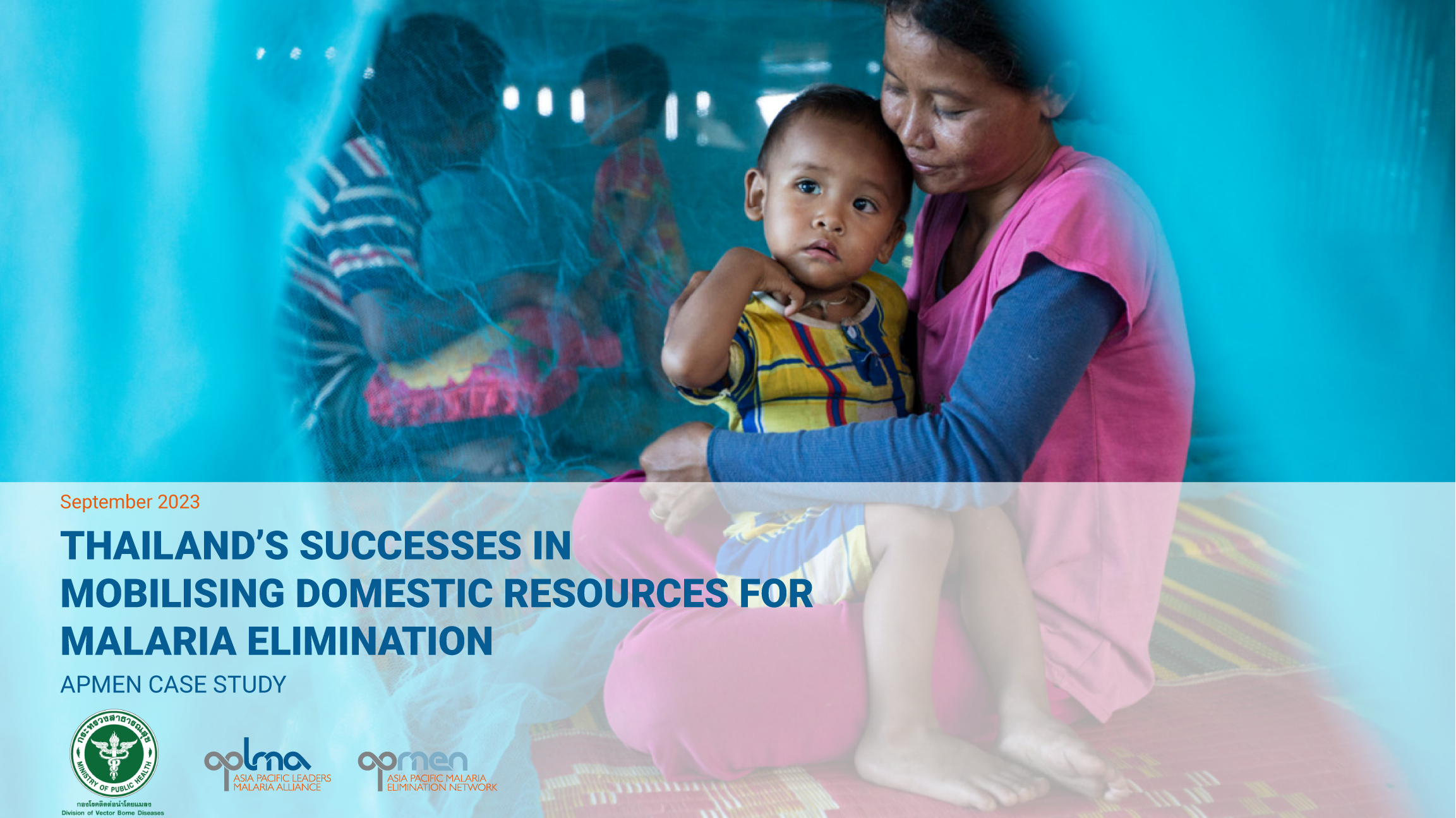
Thailand has made great efforts in mobilising domestic resources to finance for malaria elimination. While external donor funding has steadily decreased since 2017, domestic funding for malaria has increased over the past few years, especially since 2019. The most dramatic increase in domestic funding support has come from the National Health Security Office (NHSO). With a proportional share of domestic funding at 0.5% in 2017 and 53.4% in 2022, the NHSO has become the largest single domestic funding source in Thailand. Additionally, since 2018, local administrative organisations (LAOs) have also begun contributing to the domestic budget, although their contributions thus far have been comparatively modest at less than 2% of total contributions. These efforts correspond to Thailand’s commitment to the long-term sustainability of its malaria elimination programme, as highlighted in its National Malaria Elimination Strategy (NMES) 2017–2026.
This case study spotlights three successful initiatives from Thailand which have enabled the mobilisation of domestic resources for malaria elimination: the development of Universal Health Coverage, engagement with LAOs, and engagement with the private sector.
